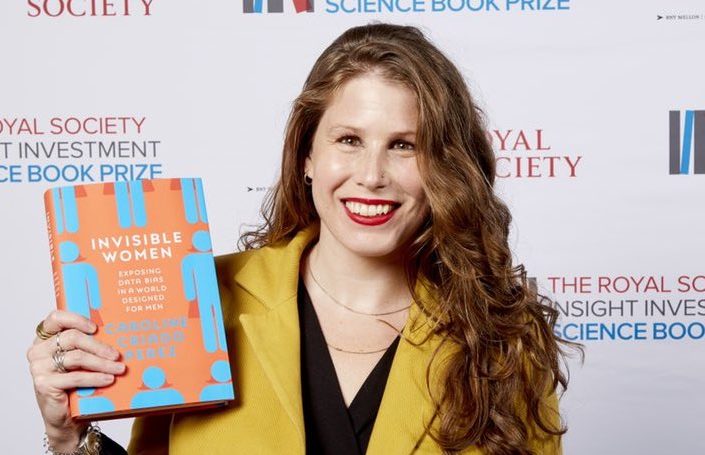 News
News


Imagine you have two CVs on your desk and only one interview slot left to offer. Both applicants have great experience, a similar educational background and both have had career success. What differentiates them is their gender. One CV is from a woman, the other from a man. Who would you be inclined to pick? Well, on average, you’re more likely to choose the man.
Implicit or unconscious bias is when we automatically make judgements and decisions about people or situations based on unobserved biases. No-one is 100% objective. According to implicit bias studies (Greenwald & Krieger; Nosek et al), 90% of Westerners associate negative concepts with the group ‘elderly’; 75% of white people (and 50% of black people) show an anti-black bias; and 75% of men and women more readily associate ‘women’ with ‘family’ than ‘career’. Of course none of us like to think of ourselves as prejudiced. But statistically, on average, we are. Often it means we favour people who look, think and act like us. This becomes a problem when just 19% of employees in the UK tech sector are women, and men are more likely to be hired.
Biases are shaped by our experiences, surroundings and cultures. Sometimes we can catch ourselves making a biased decision but a lot of the time these moments slip by unawares. What’s important, however, is to recognise the huge impact they have on our decision-making, and recruitment. Of course prospective employees will be disadvantaged, but employers can also risk missing out on employing the most valuable, talented people. Socially it’s unjust. Fiscally it’s unproductive. Commercially it hurts your bottom line.
A fascinating study of Github from 2016 compared acceptance rates of contributions from men and women in the open source software community. To their surprise, the results showed that contributions from women tended to be accepted more often than those from men.
This was, however, only when they weren’t identifiable as women. When factoring in gender, the acceptance rate of women’s code dropped by 10%. Their results showed that women on Github might be more competent, but that unconscious bias exists so that the opposite is perceived.
Anna Smith, a Software Engineer at the BBC and a Northern Voices Participant, told us: “There are additional problems with tech recruitment processes that may seem to present further barriers to entry for women. Specifically, unconscious bias affects the language in job descriptions.
“The ‘tech test’ is a key component of the recruitment process for developers. This is a matter of contention in the tech world because often what is assessed does not resemble the work that a candidate would do if they got the job.
“The gamification aspect of this type of test also favours male applicants, as they are socialised to perform better at such tasks. It is arguably a broken process for everyone, but the failings hit underrepresented groups the hardest. Confidence-based attrition makes women seven times more likely to stop practising for technical interviews than men.”
A survey from Adecco revealed that a third of UK hiring managers lack training when it comes to unconscious bias. GrowthBusiness also said the survey “revealed that the largest number of respondents bank on regular training as the most effective way to eliminate unconscious bias in recruitment, followed by 17% who think that removing age from CVs would have the biggest impact.”
Alex Fleming, president of general staffing, The Adecco Group UK and Ireland, says: “Despite unconscious bias being as big an issue as ever, too many organisations are still not taking active steps to tackle the problem. Training hiring managers in unconscious bias practice and using blind CVs are relatively easy actions for organisations to take, so it’s concerning that their deployment remains relatively low.”
At Tech Nation, we make a conscious effort to make sure we aren’t letting our unconscious bias get in the way of recruiting the best talent. We are a small (but growing) organisation, and this week we held a mirror up to ourselves to see how we fared. In numbers of staff, we fare well. 65% of our staff are women and 35% are men, and 19% of staff are from non-white ethnic groups.
Our Talent Manager April Williams, who has attended Unconscious Bias training, says: “Unconscious bias is a mindset and in order to facilitate change, you must accept and embrace it. It’s easy to say one thing, but it’s different to actually doing it.”
Tech companies can take steps to ensure that they make a conscious effort to undo unconscious bias. This could be by using external panellists when going through job applications, not only to get their expert view but to ensure they’re getting the best and most diverse employees. Businesses are also turning to AI and technology to help with the issue.
Some tech organisations are removing all academic and educational information from applications, and de-identifying CVs. Redefining the structured interview could also be an option to help eradicate unconscious bias, with all applicants asked the same set of interview questions.
According to GrowthBusiness, companies must take affirmative action, because “proactively addressing unconscious bias will not just bolster a company’s reputation and help them remain competitive, but the resulting increase in workplace diversity can also deliver improved business outcomes.”
To quote diversity, inclusion and leadership expert Stephen Frost: “Diversity is a reality. Inclusion is a choice.”
Originally posted here